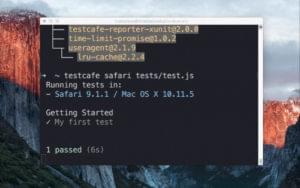You’re probably already familiar with PHP’s if statement. It’s very similar to its counterparts in many other programming languages and represents one of the most fundamental concepts in programming. The if statement is easy to understand and easy to master. This is probably what you’re used to:
<?php
if ($coolFactor >= 10) {
$message = "You are one cool dude!";
}
else {
$message = "Sorry, you aren't that cool!";
}$coolFactor a bit in the process. Allow me to introduce you to the ternary operator, which serves as a shorthand notation for if statements.
Introducing the Ternary Operator
Consisting of three parts, the ternary operator uses three expressions separated by a question mark and a colon. The question mark follows the test expression and can be thought of as asking, “Well, is it true?” The colon then separates your two possible values, the first of which will be chosen if the test expression is true, and the second if the test expression is false. Observe:<?php
$message = ($coolFactor >= 10) ? "You're one cool dude!" : "Sorry, you aren't that cool!";<?php
$favoriteColor = isset($_GET["color"]) ? $_GET["color"] : "pink";$favoriteColor. If it wasn’t, the default value “pink” is assigned instead.
Since PHP 5.3 it is possible to abbreviate ternary statements even more by excluding the middle expression. If the test expression evaluates true in a boolean context, its value is returned. Otherwise, the alternative is returned instead.
<?php
$favoriteColor = $_GET["color"] ?: "pink";Don’t Abuse It!
Before using the ternary operator, you should consider the complexity of the situation at hand. Avoid nesting or stacking your operations, even if you’re comfortable using them, as this can lead to very confusing code and unintuitive results. It’s still best to useif statements for complex situations. Above all else, be nice to the next guy and try to keep your code clean and easy to understand.
It is also not unheard of to split ternary expressions into multiple lines. As with most things in programming, there are many variations on using whitespace liberally to improve the readability of your code.
<?php
$message = $isWinner
? "Congratulations! You just won a whole bunch of money and prizes!"
: "Sorry, you didn't get any money or prizes this time.";Summary
The ternary operator may look a little weird at first but takes very little effort to master and is very easy to explain to others who may be maintaining your code in the future. With a little bit of practice you’ll be able to give your PHP code an extra dose of awesome and clear out a tiny bit of confusion from your life. Image via Arman Zender / ShutterstockFrequently Asked Questions (FAQs) about Using the Ternary Operator
What is the basic syntax of the ternary operator in PHP?
The ternary operator in PHP is a shorthand way of writing an if-else statement. It is represented by a question mark (?) and a colon (:). The basic syntax is as follows: (condition) ? (value_if_true) : (value_if_false). If the condition is true, the value_if_true is returned. If the condition is false, the value_if_false is returned.
How does the ternary operator differ from traditional if-else statements?
The ternary operator is a more concise way of writing an if-else statement. It allows you to write the condition and the outcomes in a single line of code, making your code cleaner and easier to read. However, it can be more difficult to understand for beginners or those unfamiliar with the syntax.
Can I nest ternary operators in PHP?
Yes, you can nest ternary operators in PHP. This means you can have a ternary operator within another ternary operator. However, this can make your code more complex and harder to read, so it should be done with caution.
What is the Elvis operator in PHP?
The Elvis operator is a shorthand version of the ternary operator in PHP. It is represented by two characters: ?: . It works similarly to the ternary operator, but it only requires you to specify the value_if_false. The value_if_true is assumed to be the condition itself.
Can I use the ternary operator with arrays in PHP?
Yes, you can use the ternary operator with arrays in PHP. You can use it to check if a certain key exists in an array and return a value based on that.
What are the potential pitfalls of using the ternary operator?
While the ternary operator can make your code more concise, it can also make it more difficult to read, especially if you nest multiple ternary operators. It can also lead to unexpected results if not used correctly, so it’s important to thoroughly test your code.
Can the ternary operator be used with other operators in PHP?
Yes, the ternary operator can be used with other operators in PHP. For example, you can use it with the assignment operator to assign a value to a variable based on a condition.
Is the ternary operator faster than an if-else statement?
The performance difference between the ternary operator and an if-else statement is negligible in most cases. The main advantage of the ternary operator is its conciseness, not its speed.
Can the ternary operator return a function in PHP?
Yes, the ternary operator can return a function in PHP. This can be useful in situations where you want to execute different functions based on a condition.
Can the ternary operator be used in a loop in PHP?
Yes, the ternary operator can be used in a loop in PHP. This can be useful for checking conditions and modifying values within the loop.
Amanda Steigerwalt is a twenty-something software engineer living in Mountain View, CA. Her passion for web development began at a young age and so far has served her well in life. When she's not at work coding, she can often be found at home coding her own personal projects. Amanda also enjoys motorcycles, circus arts, and exploring Mountain View. One day she really, really hopes to get a puppy.



